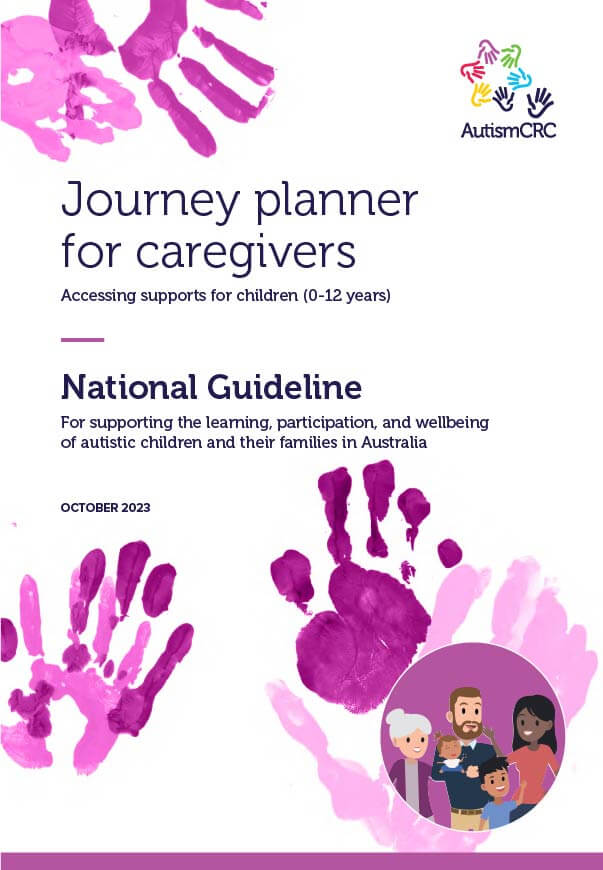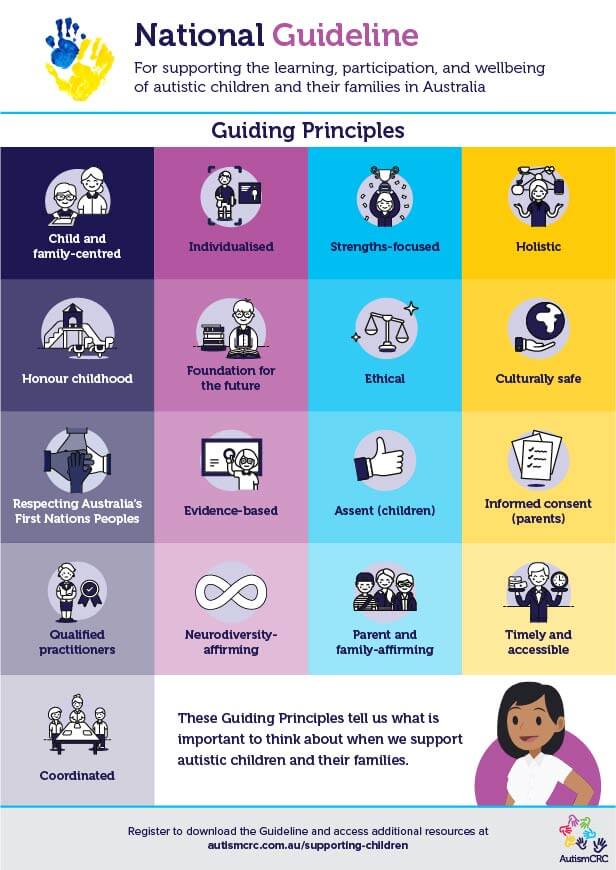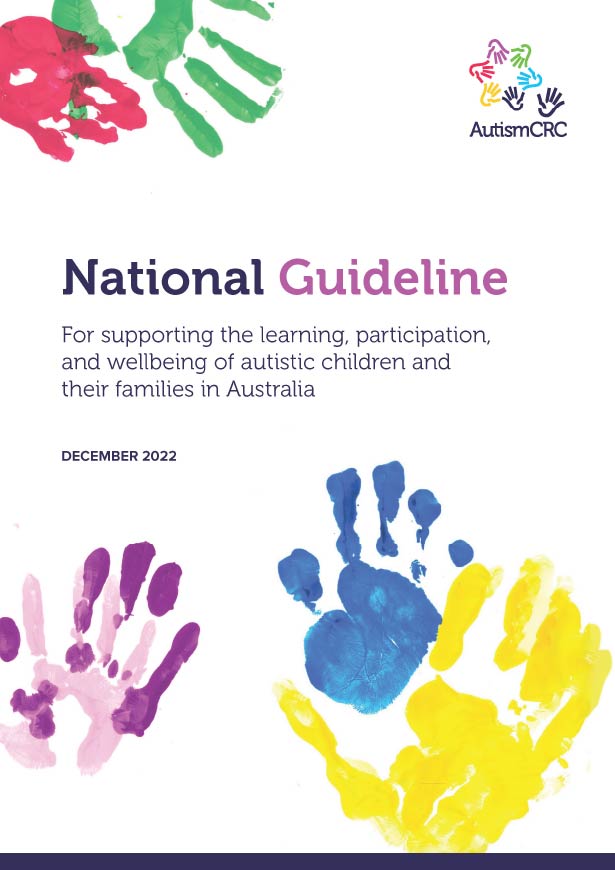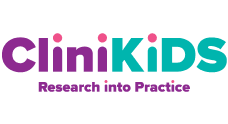For practitioners: eLearning and resources
Autistic children deserve a childhood full of love, family, fun, learning and personal discovery.
This Guideline defines evidence-based practices for supporting autistic children and their families that promote a child’s development, their participation in childhood activities, and their wellbeing. It is primarily focused on the delivery of non-pharmacological supports to children aged 0-12 years in community and clinical settings, and doing so in ways that are safe, effective, and desirable to children and their families.
Autism CRC has partnered with universities and professional organisations to deliver professional development opportunities and resources to help you understand and apply the Recommendations and Good Practice points outlined within the Guideline.
On this page, you will find an overview of each of the following learning opportunities, links to enrolment providers, and some additional resources. These include:
Supporting autistic children and their families: Short course
This course is ideal for practitioners interested in implementing a best-practice, evidence-based approach within their clinical setting. Modules and subsequent lessons within this course have been developed to allow you to effectively implement the Guideline Recommendations within practice when selecting, planning, delivering and monitoring supports. A core element of the course is the integration of three in-depth Guideline in Practice case studies which all link back to the Guideline Recommendations and important community insights.
Build your understanding of:
- Guiding principles
- Goal setting
- Selecting and planning supports
- Delivering supports
- Outcomes, quality and safeguarding.
Find out more and enrol through your preferred provider using the following links. Continuing Professional Development points and costs vary depending on professional affiliations and the course provider.
The course fee is payable directly to the provider.
Resource library
The following resources can be downloaded free of charge.
Other valuable learning and support resources are available through our eLearning course.

Journey planner for caregivers
The journey planner is designed to help parents and caregivers know what to expect when working with practitioners. It can be used as a talking point as you work through support options for children and their families.

Guiding Principles poster
A3 poster with the Guiding Principles of the Guideline for quick and easy reference. Perfect for your practice wall or waiting room.
eLearning lecture and activity
Autism CRC has developed an eLearning lecture and activity designed for delivery by education and training organisations. It provides a valuable introduction to understanding key elements of the Guideline.
The SCORM-compliant package can be easily uploaded onto compatible Learning Management Systems (LMS). The package includes:
- 2-3hr lecture and activity which delivers an overview of the foundations of the Guideline with a focus on a First Nations case study as a core element of the Guideline in Practice module.
- Content linked back to the Recommendations and relevant Good Practice Points within the Guideline, as well as valuable community insights.
- Facilitator guide, session plans, PowerPoint slides, and other essential resources.
Contact Autism CRC at info@autismcrc.com.au to request a Hosting Partner Information Pack and licensing terms.

About the Guideline
The National Guideline for supporting the learning, participation, and wellbeing of autistic children and their families in Australia (shortened to the ‘Supporting Autistic Children Guideline’ or ‘Guideline’) focuses on practitioners delivering supports in community and clinical settings.
The Guideline provides clear and consistent Recommendations and Practice Points for practitioners who deliver supports to autistic children and their families, to ensure they are doing so in ways that are effective, safe and desirable to children and their families.
Registering will you full access to the Guideline and supporting documents, including Recommendations and Good Practice Points. The Guideline is available as both a downloadable PDF document, and as a series of interactive webpages.
You can read more information About the Guideline without registration. This section includes information about the development process, how to read and use the resources, and a list of Frequently Asked Questions.




